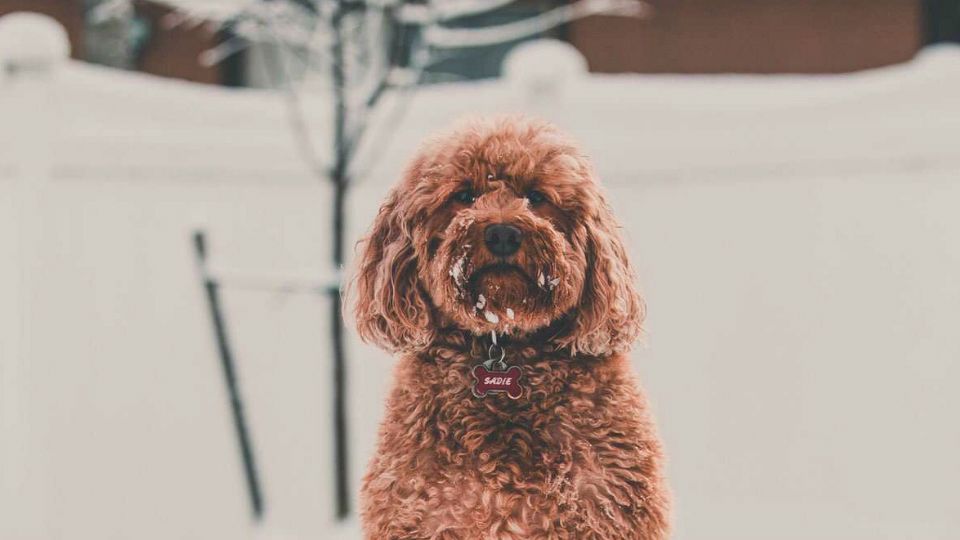CHARLOTTE, N.C. — As the state braces for yet another winter storm, have you made the necessary preparations to ensure your pets are safe?
The storm is expected to bring a hazardous mix of wintry precipitation and high-winds to areas all across the Carolinas.
To help keep our four-legged family members safe and warm, the Charlotte-Mecklenburg Police Department’s Animal Care & Control Division has released the following tips:
The best option is to bring outdoor pets inside!
If you are unable to bring animals into your heated living space, but have a garage or basement, remember if they are not heated, the temperature inside these areas will likely fall below freezing so proper bedding or straw needs to be used in these areas as well. When taking dogs out for bathroom breaks, remember to consider the breed and the type of fur coat they have, some dogs cannot tolerate the cold temperatures for an extended period of time. Dog coats are a good option for these breeds. When winter weather occurs always make sure to inspect the dog’s paws when they come inside and if they have walked on surfaces that may have been treated for ice, be sure to clean their paws thoroughly.
AC&C has a supply of straw available to Char-Meck pet owners who need assistance preparing their outside pets for winter. If you can’t bring them inside, please prepare their shelter with straw. Visit the shelter at 8315 Byrum Drive – Charlotte, NC 28217 to pick up straw.
Safety tips to keep in mind during the winter months:
Pets must build up a thicker coat and get their footpads toughened for snow and ice. Also, pets that get too cold could develop hypothermia or even frostbite. Animals that stay well-hydrated are less likely to be affected. That is why it is especially important to make sure if your pet has an outside water bowl, it does not freeze. Break up any ice that forms in the bowl and change the water frequently.
Animals also like the taste of antifreeze, but it is a deadly poison. The most likely source of antifreeze is from radiator drainage in your garage or driveway. If your car leaks any antifreeze, immediately wash it away with water.
Specific advice related to different pets:
- OUTDOOR PETS – PROPER SHELTER: If your pet spends a lot of time outdoors, let him get acclimated gradually to dropping temperatures. Outdoor pets need a sheltered place that is well-bedded with DRY straw, shavings or blanket strips that trap warm air. Remember, animals drag a lot of moisture into their bedding areas from snow, rain and mud. Check their bedding often and change it whenever it is wet. Also, outdoor pets need more food during the winter because extra calories allow them to produce more body heat. Please consult your local animal ordinances to make sure you are complaint with the law in caring for your outdoor pet. The recommendation is to bring the pet inside during cold temperatures.
- CATS: Cats prefer to spend the winter indoors, but if your cat prefers to stay outside, be very cautious. Cats left outdoors have a particular hazard because they often crawl into car engines to stay warm. When the engine is started, the cat can be seriously injured or killed by the fan blade or belt.
- PUPPIES: Puppies do not tolerate the cold as well as adult dogs and may be difficult to housebreak during the winter. If your puppy appears to be sensitive to the weather, you may opt to paper-train him inside.
- DOG FOOT (PAW) CARE: Make sure to wipe off dog’s legs, feet and stomach when they come in out of the snow or ice. They can ingest salt, antifreeze or other dangerous chemicals if they lick their paws. Be sure to inspect the pads of their feet for encrusted ice as they may crack from the cold. Many dogs need boots in cold weather.
- DOG OUTERWEAR: Dogs with very short coats have the least tolerance for cold. Extremely short-coated breeds include Greyhounds, Dobermans, Boxers, Boston Terriers, Chihuahuas, Miniature Pinschers and Miniature Dachshunds. These breeds should not go outside without a sweater or a coat. Dogs should not be shaved down to the skin during the winter months. If you bathe your dog during the winter, be sure the dry them completely before they go outside.
RELATED: Duke Energy Prepares for Mass Outages, Says Customers Should Do the Same
Justin Pryor - Digital Media Producer
Justin is a Charlotte-based digital media producer. He is a South Carolina native who worked in similar roles at a Charlotte TV station before joining Spectrum News 1 in 2019. Justin is a graduate of the University of South Carolina.





